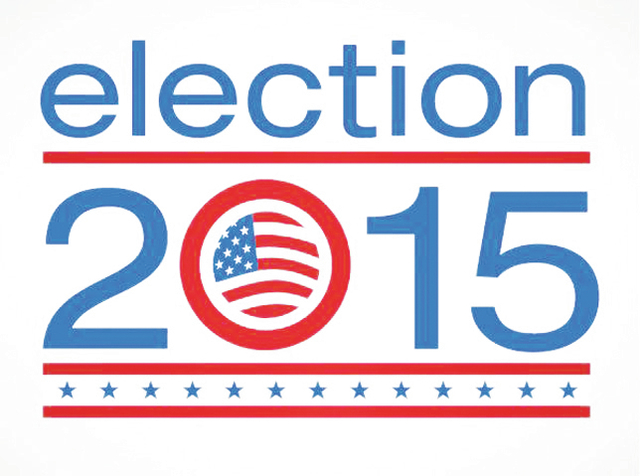In addition to electing local officials and passing or voting against levies on election night, there were three statewide issues on the ballot.
On Tuesday, November 3, Ohio residents as a whole voted to approve Issue One and Issue Two, while voting against Issue Three.
Issue One creates a new process for drawing legislative lines, effectively ending political gerrymandering, Issue Two prohibits using the initiative process to create a monopoly, and Issue Three was too legalize recreational and medicinal possession and sales of marijuana, with ten pre-selected growing sites holding exclusive right to sell their product to retailers.
Across the state, Ohio voters overwhelmingly approved Issue One and voted against Issue Three, while Issue Two passed by a small margin. Issue One was passed with 2,073,563 (71.5 percent) votes in favor to 827,971 (28.5 percent) votes against, Issue Two was passed with 1,587,060 (51.6 percent) votes in favor to 1,489,703 (48.4 percent) votes against, and Issue Three was failed with 2,003,641 (64.1 percent) votes against and 1,122,386 (35.9 percent) votes in favor.
“I think the voters made the right decisions,” Ohio State Representative Doug Green said. “I supported passage of one, two, and failure of three.”
Interestingly, in Brown County, Issue One passed but both Issues Two and Three failed. In Brown County, Issue One passed with 7,010 (62.4 percent) votes in favor and 4,219 (37.6 percent) votes against, Issue Two failed with 6,366 (53.7 percent) votes against and 5,479 (46.3 percent) votes for, and Issue Three failed with 7,051 (58.8 percent) votes against and 4,944 (41.2 percent) votes in favor.
I think in the passage of Issue One, it took away the appearance of gerrymandering, and that was a good thing,” Green said. “Issue Two was an opportunity that we had to ensure if Issue Three passed, we had an ability to block it, but even more importantly, I don’t believe it’s appropriate for the ability to create a constitutionally-supported monopoly, oligopoly, nor create a tax advantage for a select group of individuals or companies. I was glad to see Issue Two pass for that reason.
“On Issue Three, it was a monopoly or oligopoly, whatever you want to call it. It’s totally inappropriate. I’ve had questions along the way about if this can be retroactive and take away the casinos because that was a similar situation, and I don’t agree with that decision, though I wasn’t in the legislation. I don’t think the casinos should have been established in our state’s constitution. That doesn’t make sense to me.”
State Senator Joe Uecker agreed that perhaps in the past the casino legislation shouldn’t have been allowed to be amended into the Ohio Constitution. “We should never have allowed the state to get involved in specialized interests getting deals for themselves,” Uecker said.
Perhaps the most interesting outcome on election night was the defeat of the marijuana legalization bill, which would have made Ohio the fifth state in the nation to decriminalize marijuana. While Green said that he was glad that it was defeated in the polls, he feels the monopoly aspect of the bill was the most worrisome.
“I had several conversations with people who support the casual use of marijuana,” Green said. “They think if marijuana usage is legal, they should be able to raise what they want and it shouldn’t be restricted. So I believe the voters of Ohio made the right decisions on Election Day.”
Locally, law enforcement officials had been outspoken in their opposition to Issue Three. Brown County Sheriff’s Office Chief Deputy Carl Smith, Brown County Prosecutor Jessica Little, and Brown County Juvenile/Probate Court Judge Danny Bubp all wrote letters in opposition of Issue Three.
“I am very pleased that it got defeated,” Smith said. “I think all three of us would have the same opinion that this is the best thing for Ohio.
“I haven’t asked everyone I’ve arrested in my 29 years of law enforcement, but I’ve arrested a lot of people and I’ve asked a lot of them, whether arrested for methamphetamine, cocaine, or heroin, and every one of them said they started out with marijuana.”
According to the National Institute on Drug Abuse, the impact of cannabis on adolescent rodents in animal studies leads the institute to find that marijuana could be considered a gateway drug, though a person more-likely to use drugs of abuse could just start with alcohol or marijuana because it’s easier to acquire before potentially moving onto more controlled substances.
Uecker, who opposed Issue Three and favored the passage of Issues One and Two, said that he believes Issue Three compelled eligible voters to make it to the polls.
“I really thing that Issue 3 drove people off their couch to vote. The people I saw coming in, I had a feeling they were here for an issue. I was pretty pleased to see that.
While Uecker said that he expects the pro-marijuana lobby to regroup for next year’s election, he said it might be time for the state assembly to start debating the positives and negatives of medical marijuana.
“It does beg the issue that maybe the legislature does need to look at the medical marijuana question,” Uecker said. “I’m always open to the question, I’m always open to the debate. I’m not convinced it’s something we need to do but I’m always open to the debate.”
Regarding Issue One, Uecker said that while he would consider being a member of the bipartisan redistricting commission, he would prefer having members of the public involved and leaving the politics out of the equation.
“I think that it’s probably best left to the public to decide on these type of things,” Uecker said. “I think if we go back to putting more politicians on the board it kind of defeats the purpose. I prefer it be a commission of the people.”



